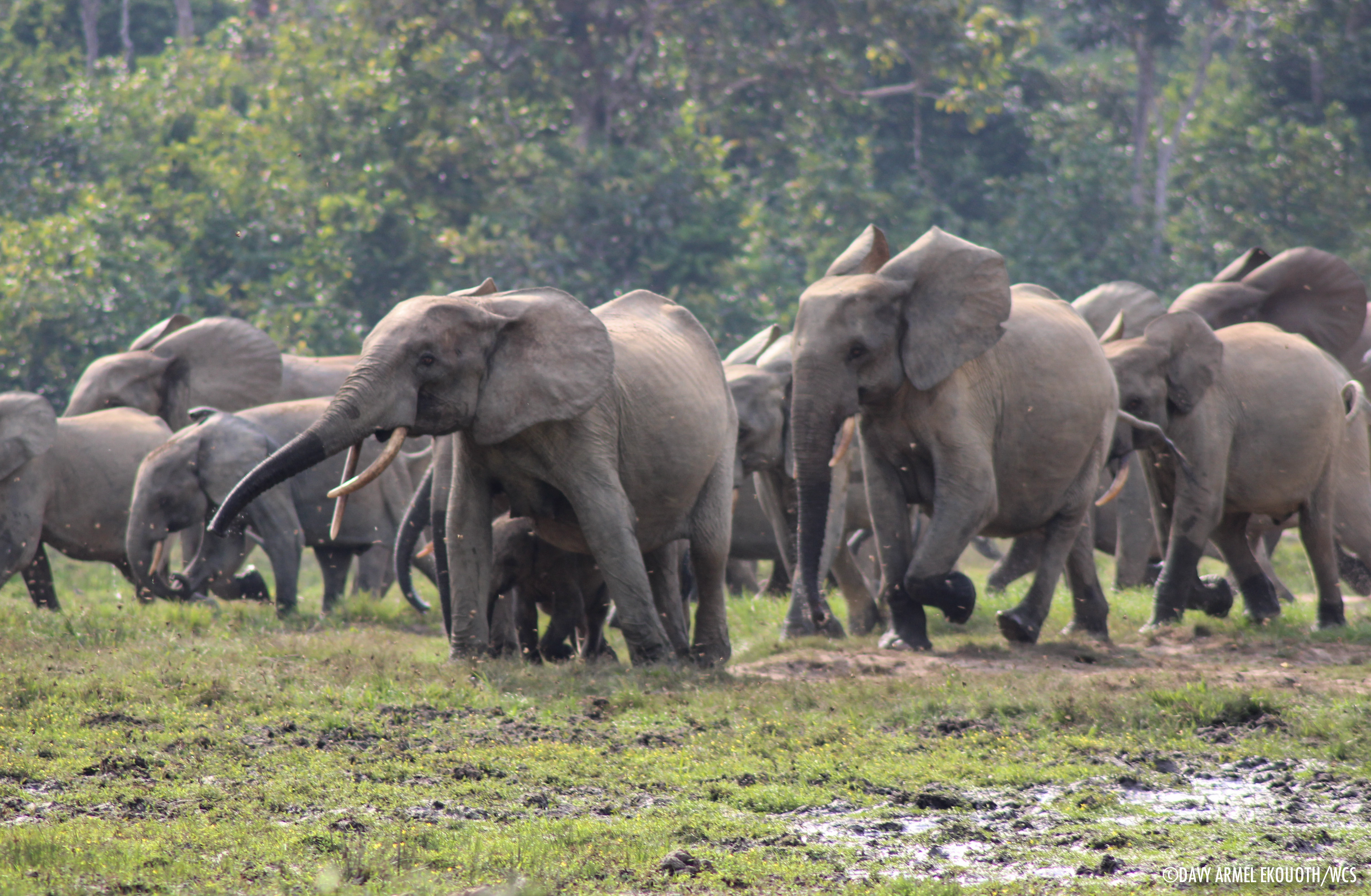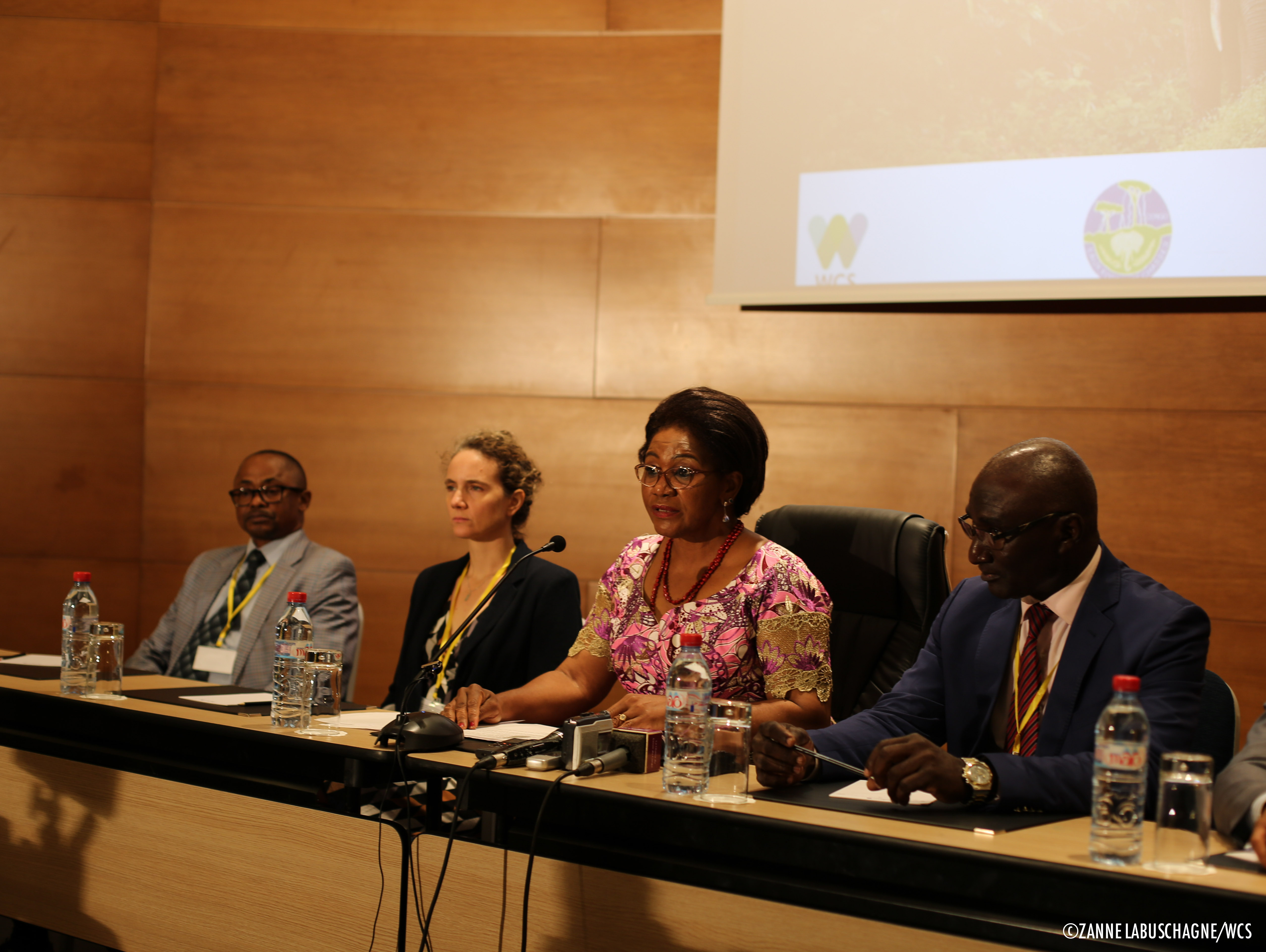
Securing a future for elephants in Congo
At the end of February 2017 Government representatives, experts on elephant conservation and national and international stakeholders came together in Brazzaville to develop the Republic of Congo’s National Action Plan for Elephants.
In April 2015 Congo burnt their ivory stockpile, over 4 tons in total, making a symbolic statement that the country only sees value in ivory when it is where it belongs… on elephants in Congo’s wild places. The following year, by confirming its intention to join the Elephant Protection Initiative in January 2016 at the 66th meeting of the Standing Committee of CITES in Geneva, the Republic of Congo reaffirmed its commitment to safeguarding its elephants.
”Congo has shown real leadership in the field of conservation for many years, protecting its elephants and other wildlife under innovative management models in Nouabale-Ndoki and Odzala-Koukoua National Parks. By joining the Elephant Protection Initiative, the country has underlined its commitment to take concerted action to protect its elephants, and WCS is honoured to work alongside the government to support these efforts.” - Mark Gately, Director of WCS’s Congo Programme
The African Elephant Action Plan (AEAP), adopted by all elephant range states in Africa in 2010 aims at reducing elephant poaching and the illegal ivory trade; to conserve elephant habitat; reduce human-elephant conflicts; and to raise awareness among local communities on elephant conservation and promote cooperation in terms of management between states. The National Elephant Action Plans (NEAPs) aim to implement the AEAP according to national priorities, and provide individual range states with a clear strategy to achieve these objectives listed above.
During her opening address to the members of the workshop Her Excellency, Madame Rosalie Matondo, Congo’s Minister of Forest Economy, Sustainable Development and the Environment, spoke of the country’s continued dedication to securing a future for Congo’s elephants, “Morally, the elephant is an inheritance that we owe to our future generations.” She went on to elaborate the importance of elephants in the country and future plans to diversify Congo’s economy: “Our country has taken the decision to diversify its economy with a focus on sustainable and environmentally friendly investments, predominantly tourism, and more specifically ecotourism in the country’s protected areas. Conserving the elephant is therefore a guarantee of sustainable jobs and income for Congolese people, especially young people in rural areas. The elephant constitutes a vital link in the trophic chain, which many other species depend on, so much so that if the elephant disappears, many other species would disappear as well. Forest elephants are referred to as ‘the architect of the forest’… to conserve elephants, is therefore to conserve the forest, and in doing so, and protecting the entire ecosystem we help fight climate change.” She concluded stating ‘’protecting elephants amounts to protecting ourselves’’.

The National Ivory Action Plan (NIAP) submitted to the CITES Secretariat in 2015 was officially validated by the participants in plenary assembly on the first day of the workshop The NIAP will constitute a key pillar of the final National Elephant Action Plan in combatting ivory trafficking. The National Elephant Action Plan (NEAP) is anticipated to be finalized and validated by September 2017. In addition to combatting wildlife trafficking, it will include key strategies to protect core elephant populations in protected areas and mitigate human-elephant conflict. It will ensure Congo remains a leader in the region in protecting its heritage and ensuring a long-term future for its elephants.
Congo’s rich and vibrant biodiversity must be protected. Stop Ivory is working with valuable partners such as WCS to support the Congolese government as they work tirelessly to protect their elephants by implementing their National Elephant Action Plans. The EPI is fundamentally collaborative; by working closely together through structured processes such as this workshop, we can ensure a holistic approach to elephant protection in the Congo” said John Stephenson, CEO of Stop Ivory.

